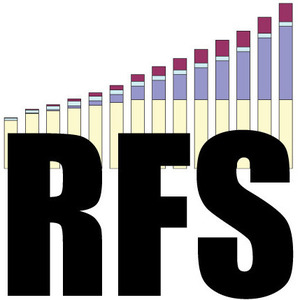Proposed RFS growth sends hopeful signal to biodiesel industry

June 26, 2018
BY The National Biodiesel Board
The National Biodiesel Board expressed appreciation that the U.S. EPA proposed an increase in the biomass-based diesel and advanced biofuel categories under the Renewable Fuel Standard. While the proposed increase sends a very positive signal to the industry, EPA’s granting of dozens of retroactive small refinery hardship exemptions undercut prior year volumes and could still have a negative impact on future year standards.
“We welcome the administration’s proposal to grow the biodiesel volumes, following two flatlined years,” said Kurt Kovarik, vice president of federal affairs at NBB. “This is a positive signal for our industry and we’re pleased the EPA has acknowledged our ability to produce higher volumes. We’ve consistently demonstrated that we can do much more. The fact remains, though, instability in the RFS program caused by the EPA has done significant damage that can only be rectified for biodiesel through consistent and predictable growth in volumes.”
Kovarik pointed to decisions by the EPA administrator to provide numerous waivers to petroleum refiners that release them from their obligations under the RFS, effectively reducing the overall volumes under the program in 2016 and 2017. Those exemptions have effectively reduced current obligations for biodiesel by 100 million gallons in 2016 and 275 million gallons in 2017.
Advertisement
“As a candidate on the campaign trail, Donald Trump pledged he would support biofuels and protect the RFS,” Kovarik said. “While this is just a proposal, we hope the administration is serious about growing biodiesel volumes and will fulfill the president’s promise to support and grow the RFS.”
The EPA proposed the renewable volume obligations (RVO) for the biomass-based diesel category would increase from 2.1 billion gallons in 2019 to 2.43 billion gallons in 2020. The advanced biofuel category, for which biodiesel also qualifies, would also increase slightly from 4.29 billion gallons in 2018 to 4.88 billion gallons in 2019, under the EPA’s proposal.
The RFS, passed by a bipartisan Congress and signed into law by President George W. Bush, requires the EPA to gradually grow the volume of advanced biofuels like biodiesel delivered to consumers. Since taking office, President Trump’s EPA has recommended zero growth for the biomass-based diesel category.
Advertisement
The Trump administration’s actions on the RFS before this proposal have been disappointing for both the biodiesel industry and farmers in the Midwest, who have seen commodity prices of their crops plummet as a result of international trade and other market dynamics. Farming income has dropped more than 50 percent and sits at its lowest level in more than a decade. Recent polling by NBB shows Midwestern states were not happy with EPA Administrator Pruitt’s previous decisions on the RFS, which they view as broken promises of support for local agriculture and renewable fuels industries.
Approximately 50 percent of biodiesel is produced from soybean oil, a byproduct of processing soybeans for protein in food products. This added value provides another source of income for soybean farmers; the added value for soybean oil means they’re able to make the protein for the food supply available at lower prices.
Made from an increasingly diverse mix of resources such as recycled cooking oil, soybean oil and animal fats, biodiesel is a renewable, clean-burning diesel replacement that can be used in existing diesel engines without modification. It is the nation’s first domestically produced, commercially available advanced biofuel. NBB is the U.S. trade association representing the entire biodiesel value chain, including producers, feedstock suppliers, and fuel distributors, as well as the U.S. renewable diesel industry.
Related Stories
Iowa farmers have a new market opportunity for their 2025 soybean crop. Landus is expanding its Clean Fuel Regulation initiative, made possible by recent policy changes expected to increase Canada's demand for liquid biofuel.
Klobuchar, Moran introduce bipartisan legislation to support biorefineries, renewable chemicals, and biomanufacturing
Sens. Amy Klobuchar, D-Minn., and Jerry Moran, R-Kan., on July 31 announced the introduction of the Ag BIO Act. The legislation aims to update the USDA’s loan guarantee program to better support biorefining projects.
U.S. Secretary of Agriculture Brooke L. Rollins on Aug. 1 announced the opening of a 30-day public comment period for stakeholders to provide feedback on the department’s reorganization plan, as outlined in the memorandum released July 24.
Sen. Chuck Grassley, R-Iowa, on July 31 pressed Derek Theurer, President Donald Trump’s nominee to serve as under secretary of the U.S. Department of Treasury, on the expected timeline for the release of 45Z guidance.
The European Commission on July 28 approved a €36 million ($41.07 million) Danish state aid scheme designed to encourage airlines operating in Denmark to use sustainable aviation fuel (SAF) on domestic routes.
Upcoming Events










